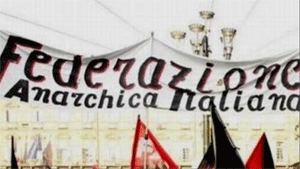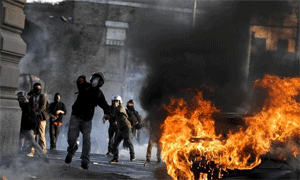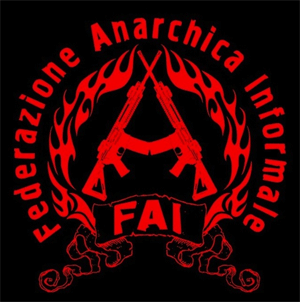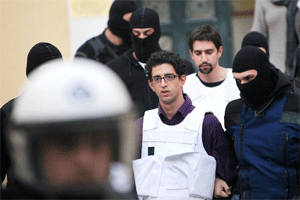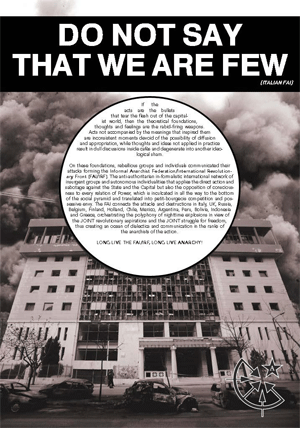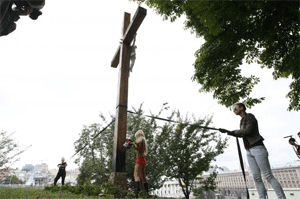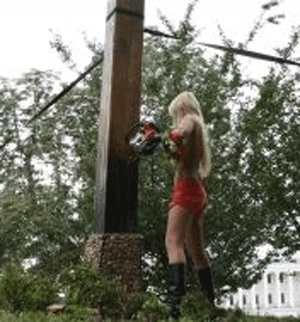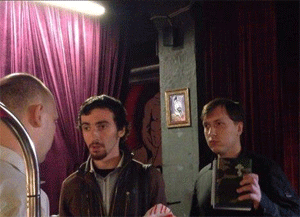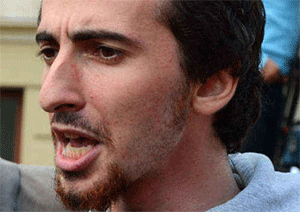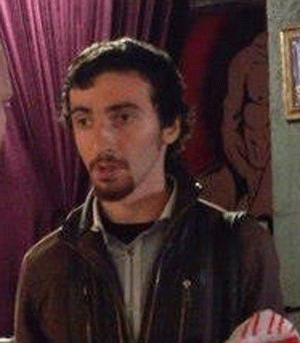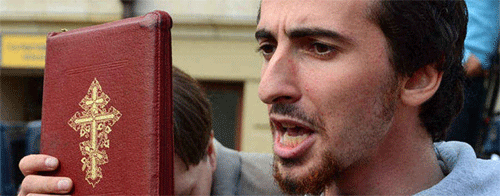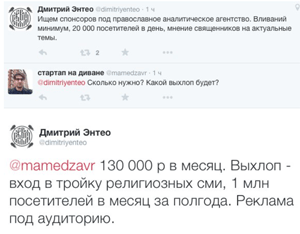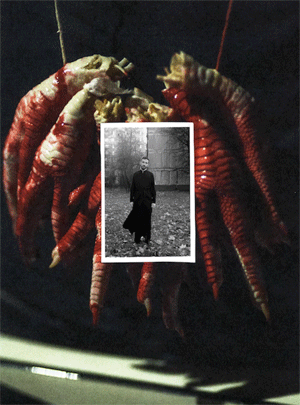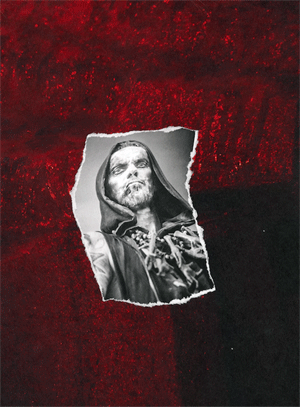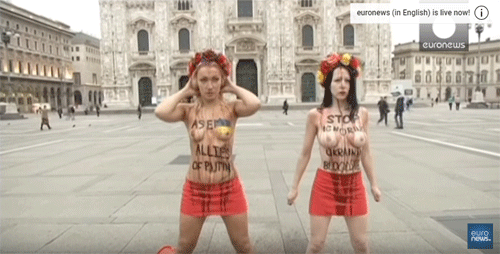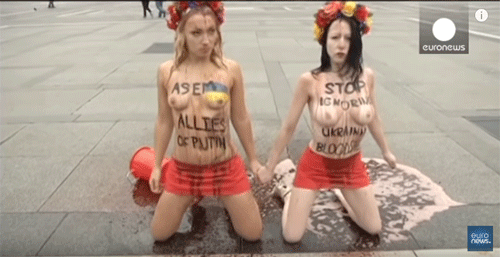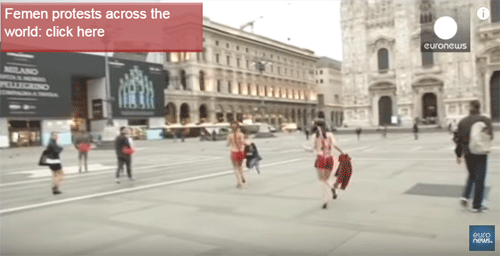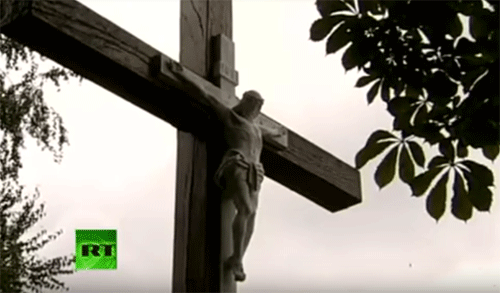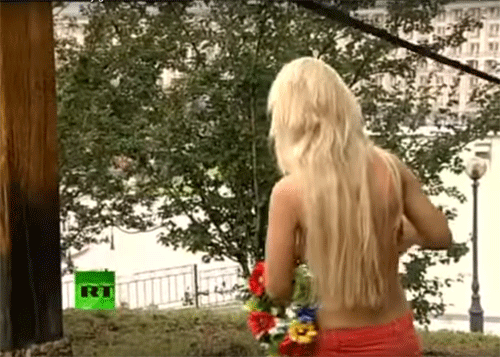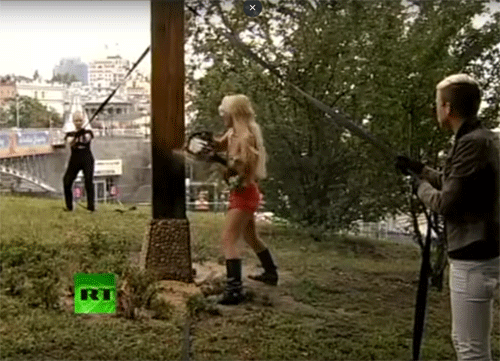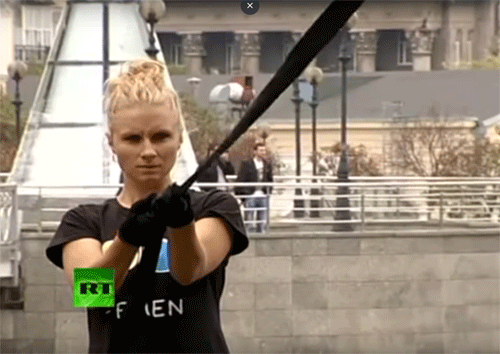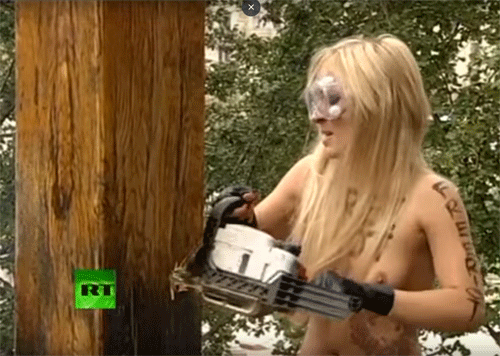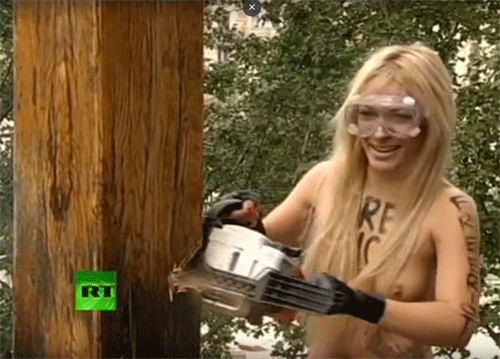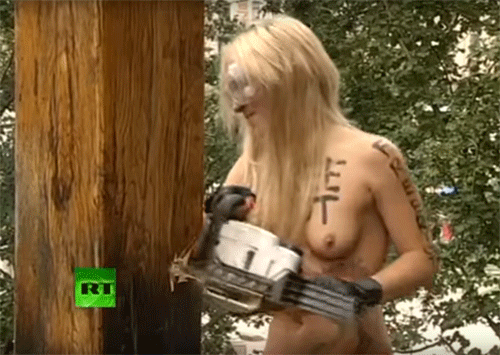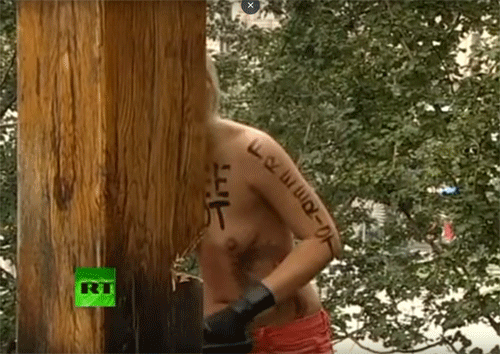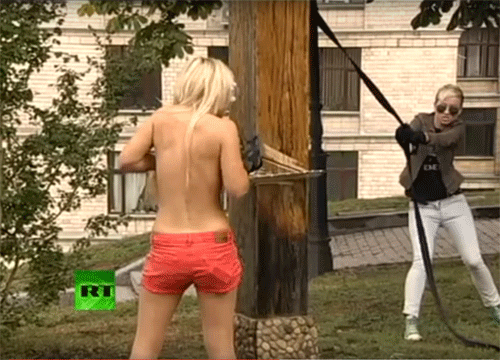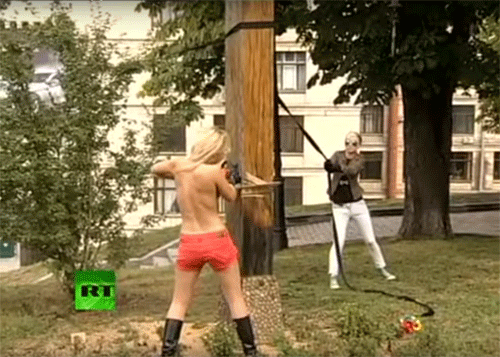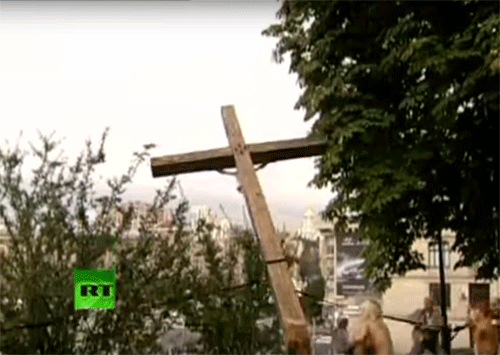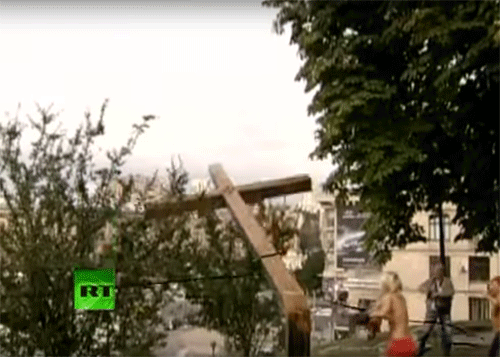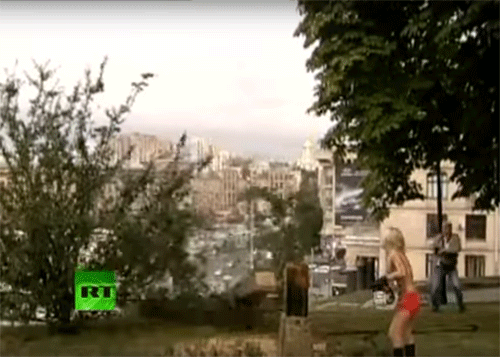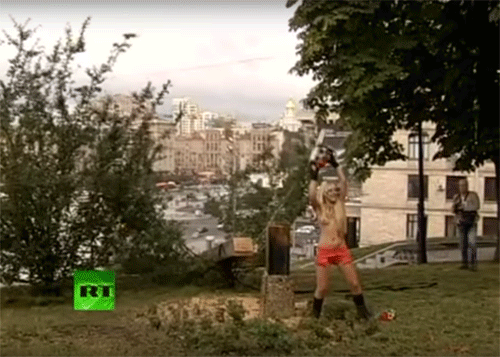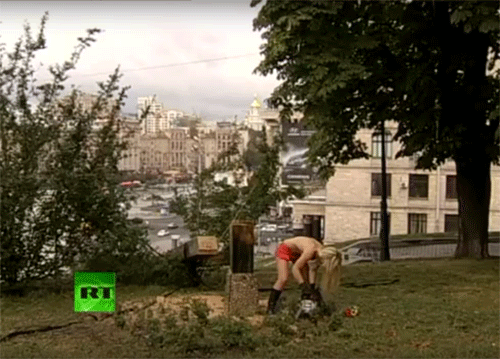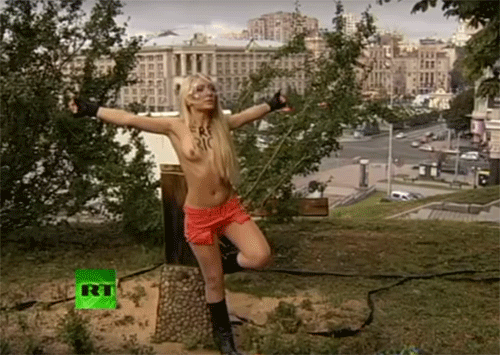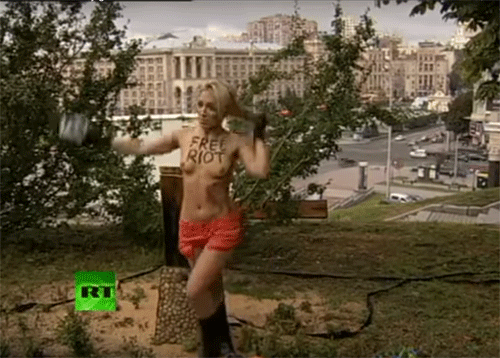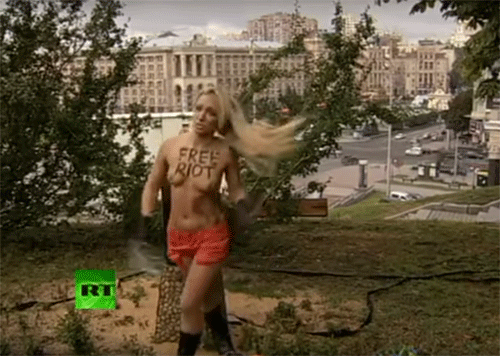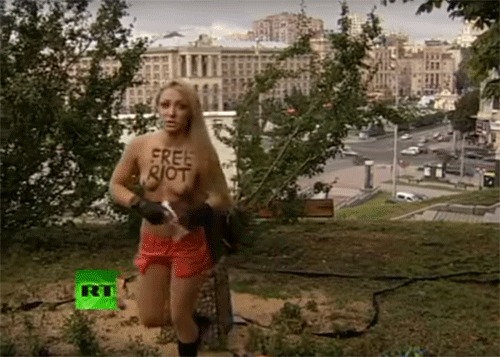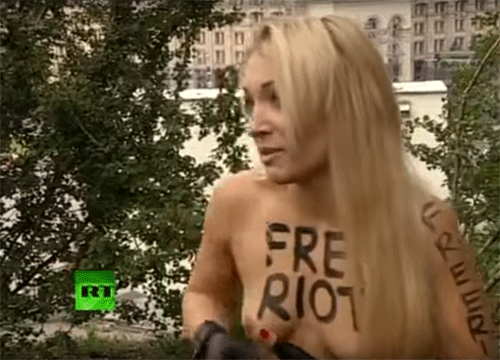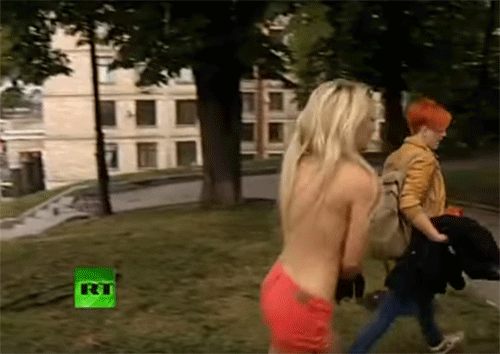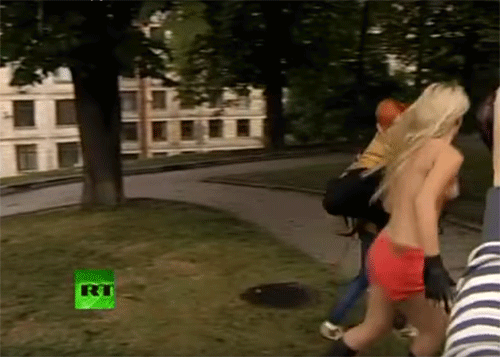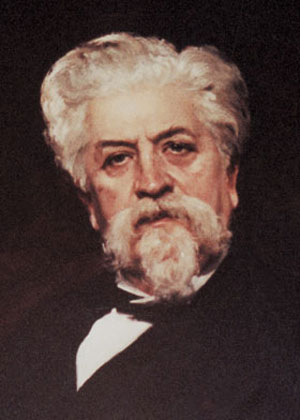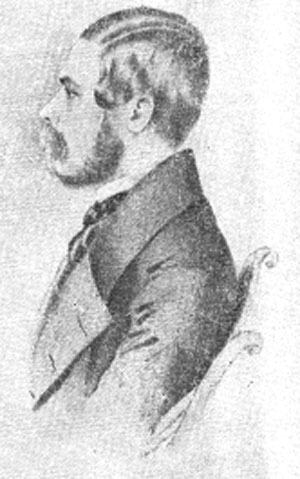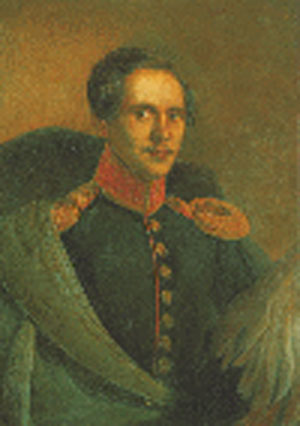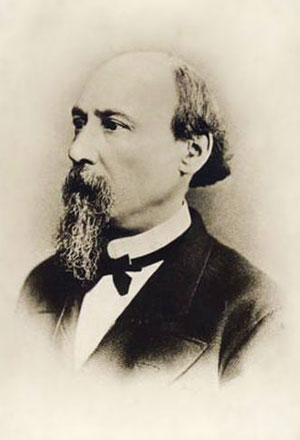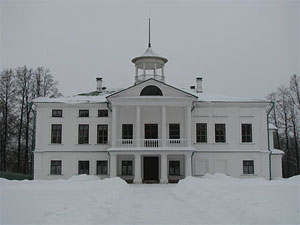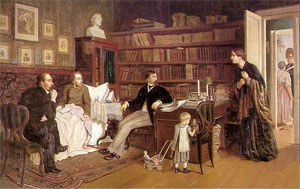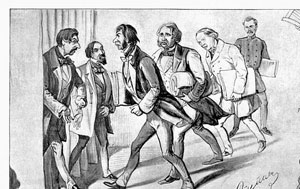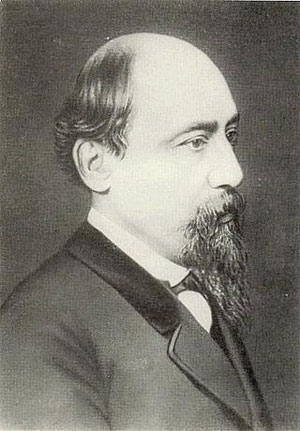Report on Monitoring of Incidents of Discrimination and Violence on Grounds of Sexual Orientation and Gender Identity in 2014 -- EXCERPTby Coming Out, LGBT Group
St. Petersburg
2015
NOTICE: THIS WORK MAY BE PROTECTED BY COPYRIGHTYOU ARE REQUIRED TO READ
THE COPYRIGHT NOTICE AT THIS LINK BEFORE YOU READ THE FOLLOWING WORK, THAT IS AVAILABLE SOLELY FOR PRIVATE STUDY, SCHOLARSHIP OR RESEARCH PURSUANT TO 17 U.S.C. SECTION 107 AND 108. IN THE EVENT THAT THE LIBRARY DETERMINES THAT UNLAWFUL COPYING OF THIS WORK HAS OCCURRED, THE LIBRARY HAS THE RIGHT TO BLOCK THE I.P. ADDRESS AT WHICH THE UNLAWFUL COPYING APPEARED TO HAVE OCCURRED. THANK YOU FOR RESPECTING THE RIGHTS OF COPYRIGHT OWNERS.
Table of Contents:• Introduction
• Main Body: Analysis of Revealed Violations
o Hate Crimes (Physical Violence, Assaults
o Hate Speech
o Interaction with Police
o The Law Against “Propaganda,” Its Application and Consequences
o Outing and Persecution
o Refusal of Goods and Services
o Civil Rights Violations on the Grounds of Gender Identity
• Recommendations
o To the St. Petersburg Ombudsman
o To Law Enforcement Agencies
o To Courts
o To Educational Institutions
o To Medical Specialists Working With Transgender People
o To Non-Government Organizations
INTRODUCTIONThis report is based on the results of the LGBT rights abuses monitoring program carried out by LGBT-initiative group “Coming Out” in St. Petersburg in 2014.
Since 2008, “Coming Out” has worked for the acceptance of human dignity and equal rights of each person by the government and society regardless one’s sexual orientation and/or gender identity. We organize workshops and round tables, public brochures, provide free psychological and legal assistance for LGBTIQ communities and their relatives, take on strategic court cases, and carry out a monitoring program of discrimination and other human rights abuses against LGBTIQ [1] [This report uses abbreviations “LGBT” (lesbian, gay, bisexual and transgender people), as well as LGBTIQ (lesbians, gays, bisexual, transgender, intersex*, and queer people)] people.
The methodology of this research is a standard methodology of human rights abuses and discrimination on the basis of sexual orientation and/or gender identity, developed by the Russian LGBT network together with ILGA-Europe and HURIDOCS.
Throughout the monitoring process, the monitoring program coordinator and volunteers collect narratives of the cases of human rights abuses and discrimination against LGBT people on the grounds of their sexual orientation and/or gender identity.
Such monitoring is based upon four sources: 1. Victims and witnesses, 2. Mass media, 3. Information collected and passed on by other governmental and non-governmental institutions, 4. Internet messages (blogs, forums, websites).
All cases of abuses are put into a database, after which the coordinator of the monitoring program contacts victims and witnesses in order to check and confirm the information.
Some cases are put into the database by lawyers of “Coming Out,” who consult and provide legal assistance to victims of human rights abuses. Details of such cases are then also checked in communication with victims and witnesses.
Analysis of data gathered through monitoring allows us to highlight main problems present in the life of LGBTIQ communities and LGBTIQ activists in St. Petersburg in 2014.
Currently, the first problem of interest is hate crimes. In 2014 lawyers of “Coming Out” and other groups continued to work on cases of infamous attacks on LGBTIQ activists, but criminal cases are either not opened at all or are not qualified with the motive of social hatred. Assailants remain unpunished.
Several new attacks took place in 2014 during public actions or festival activities. At the same time, in the past year a new problem came to light: homophobic attacks which are not related to LGBTIQ rights activism, where assailants identify same-sex couples in public places as members of the LGBTIQ community and attack them.
Organized groups, which carry out attacks on members of LGBTIQ communities through the setting up of fake romantic dates, still operate.
Another remaining problem is homophobic and transphobic hate speech voiced by Saint Petersburg’s politicians and journalists who justify and legitimate violence and discrimination towards LGBTIQ people and support existing negative stereotypes. Since LGBT people are not legally recognized as a social group and are thus not protected under the Criminal Code of Russian Federation, the lawyers of “Coming Out” could not apply the existing legal, administrative, and criminal defense tools to situations involving hate speech in 2014.
Despite a series of positive examples of productive interaction with the police (defense of the public activities and their participants), specific problems remain in this field. For example, activists illegally arrested at public events and rallies in 2013 and charged with allegedly committed hooliganism were unable to receive any compensation payments. There were also allegations of blackmail by police.
The infamous Saint Petersburg law against “propaganda of sodomy, lesbianism, bisexualism and transgenderism amongst minors” was repealed in 2014. Unfortunately, the abolition of this law is not a result of the authorities’ will to perform their duties in the area of human rights and non-discrimination, but only of a similar law having been passed on the federal level. Even worse, all the negative effects of the criminalization of “propaganda” are still present to their full effect due to the federal law. Thus in 2014, there was a legal case based the Russian Code of Administrative Offenses (CoAO RF) against one of city’s LGBTIQ activists. The law is sometimes used unofficially to discredit LGBTIQ activists in court cases unrelated to “propaganda”.
Another problem that emerged in 2014 is the so-called “outing” [2] [Outing is an act of disclosure of sexual orientation or gender identity of a person by others without that person’s consent; usually done in order to cause damage to that person’s reputation and/or initiation difficulties in professional or private life] of LGBTIQ persons and activists. This problem strongly affected schoolteachers, some of whom were forced to retire or were fired for “amoral activities” after their school administrations received “dossiers” and demands to fire these teachers from homophobic activists.
Finally, despite the relatively decent situation with transgender rights in St. Petersburg (in comparison to other Russian regions), abuses were found in this area as well. We have recorded cases of refusal to diagnose and issue medical reports to transgender individuals unless they divorce, as well as the outing and bullying of a transgender employee in an educational institution.
Thus, the monitoring and analysis of gathered information of the LGBTIQ communities’ situation in St. Petersburg reveals that members of this social group remain exceptionally unprotected from both the legal perspective and the perspective of existing law enforcement practices. In order to improve the situation of LGBTIQ people and LGBTIQ activists we provide a complex of recommendations to authorities, healthcare professionals, and human rights organizations.
MAIN BODY: ANALYSIS OF REVEALED VIOLATIONS
HATE CRIMES (PHYSICAL VIOLENCE, ASSAULTS)The term “hate crimes” applies to criminal acts caused by prejudice and bias towards a specific group of persons. [3] [See, for example, the definition of Methodological Guide in OSCE Region “Hate Crimes: prevention and response” (2009), p. 15. URL
http://www.osce.org/odihr/39821?download=true] Homophobic and transphobic hate crimes, of which members of LGBTIQ communities and LGBTIIQ human rights defenders become victims, are crimes (often physical violence and assault) with the main motive of hatred or animosity towards homosexual, bisexual, or transgender people.
Several international organizations have developed a series of standards for governmental authorities to prevent and investigate homophobic and transphobic hate crimes, as well as to punish such crimes and compensate the victims. Thus, the recommendation of the Committee of Ministers of the Council of Europe proposes to member states to provide effective, immediate and imparial investigation in such criminal cases, and to ensure that the motive relating to sexual orientation and/or gender identity would be used as an aggravating circumstance in determination of punishment. [4] [Recommendation of Committee of Ministers of European Council CM/Rec (2010) 5 (Appendix, parts 1 and 2).] As of 2012, The Committee Against Torture has recommended that Russian Federation will, without delay, impartially and effectively investigate all acts of violence and discrimination towards LGBT persons, to hold those found guilty responsible, to compensate the victims, to keep statistics of such crimes and the results of their investigation, and to publicly condemn attacks on LGBT persons and to hold informative educational programs among the police. [5] [Committee Against Torture: Final notes: Russian Federation CAT/C/RUS/CO/5 (2012). Paragraph 15.]
Despite the fact that the current revision of the Criminal Code of Russian Federation allows prosecutors to consider a motive of hatred towards a social group as an aggravating circumstance (paragraph “e” part 1 article 63 of the Criminal Code) or as a qualifying factor (in particular paragraph “l” part 2 article 105, paragraph “e” part 2 article 111, paragraph “e” part 2 article 112 CC RF), according to our data, it has never happened in the criminal practice of St. Petersburg.
It is necessary to highlight that as of 2015, The UN Committee on Human Rights has recommended that Russia “undertakes all necessary measures to strengthen legal protections of LGBT people from discrimination and violence and provides investigation, criminal prosecution and punishment of any acts of violence, motivated by sexual orientation or gender identity of the victim, and applies paragraph “e” part 1 article 63 CC RF”. [6] ]Human Rights Committee. Final notes: Russian Federation. CCPR/C/RUS/CO/7 (2015). Paragraph 10.]
In 2014, our monitoring program has documented incidents of violence motivated by hatred towards LGBTIQ and also police reaction on reports of such acts and court cases that followed criminal charges. The collected data can be grouped in three categories: 1) attacks on LGBTIQ activists during LGBT-activities, motivated by homophobic and transphobic hatred, 2) attacks on LBGTIQ community members unrelated to human rights activism or other public activity, 3) attacks committed by luring victims to a fake romantic date (activities of groups like “Occupy-Pedophilia” have brought such attacks into the public arena). [7] [See, for example, part “Violence and Harassment against LGBT People and Activists in Russia”. URL:
https://www.hrw.org/reports/2014/12/15/license-harm-0.
***
CASE A.8One day prior to the opening of the festival, calls to disrupt the event appeared on multiple pages on social network “VKontakte” belonging to well-known homophobic activists and nationalistic groups.
On September 18, 2014, several hours before the beginning of the event, owners of the venue (art-space “Freedom” in business center “Kazanskiy”) terminated their lease to the festival’s organizers. [8] [See Case F1 for details] After the organizing team had left, a group of about ten people, among whom were the deputy of the Legislative Assembly of St. Petersburg Vitaly Milonov, radical Orthodox activists Anatoly Aryukh and Dmitry Enteo (Tsorionov) attempted to break into the art-space “Freedom.” Vitaly Milonov was making offensive statements.
Approximately at 7:30 PM during the opening ceremony of “QueerFest,” a group of more than 10 people attempted to enter the new venue. Vitaly Milonov, Anatoliy Artyukh, Mihail Kuzmin, Dmitriy Enteo (Tsorionov) and Timur Isaev (Bulatov) were in that group. Security guards stopped these people from entering the venue, and the members of this group shouted out several insults. Then the doors were closed. Homophobic activists began to pour water on the security guards, as well as green antiseptic liquid on the attendants of the vent. The latter was poured through the holes between doors with syringes and hit people’s clothes and faces. Then the homophobic activists closed the doors from the outside, placing a metal hanging lock on them. After approximately half an hour, the same people attempted to enter the room through a different door. Guards prevented them from entering, and again they began to pour green dye on people through syringes. In addition they spread a pungently odorous substance through the cracks between doors. As a result, many participants of “QueerFest” began to feel unwell, but were unable to leave due to the fact that one of the doors was closed from the outside and aggressive homophobic activists were standing near the other. Some people who attempted to leave the venue were assaulted by homophobic activists; the aide of deputy Milonov punched one of the participants, Alexey Poskrebyshev, in the face. The police, despite the fact that they knew what was happening, were inactive and took steps to ensure the safety of the guests of the festival only after the St. Petersburg Ombudsman arrived on site. None of the assailants were detained. Six guests of the event filed complaints to the police on the spot, others did so later; overall, 26 complaints were filed. During the following day several people visited medical professionals due to health concerns. After the complaints were reviewed, one homophobic activist, so-called Timur Isaev, was charged with an administrative infraction. However, as became known later, police accidentally arrested the wrong person.
***
HATE SPEECHHate speech (or pronouncements of hatred) is a form of self-expression, which can be reasonably understood as incitement, proliferation, or support of hatred or other forms of discrimination towards lesbians, gays, bisexual or transgender people. [9] [Definition in Recommendation of Committee of Ministers of European Council CM/Rec(2010)5 Appendix, part 6).
International standards of human rights demand that governments ban and publicly refute such hate speech regardless of where they take place; [10] [Recommendation of Committee of Ministers of European Council CM/Rec(2010)5 (Appendix, part 6)]. they also demand increased education of public authorities and public institutions on all levels about their duty to abstain from hate speech, and especially those made via mass media. [11] [Recommendation of Committee of Ministers of European Council CM/Rec(2010)5 (Appendix, part 7)].
In March 2015, the UN Human Rights Committee recommended that Russian authorities “clearly and officially declare their intolerance of […] hate speech […] towards people due to their sexual orientation and gender identity.” [12] [Human Rights Committee, Final recommendations, Russian Federation. CCPR/C/RUS/CO/7 (2015). Paragraph 10.
Theoretically, Russian law allows conviction for homophobic and transphobic hate speech. As such, article 282 CC RF recognizes as a crime “actions, intended to incite hatred or aggression, and also to insult the human dignity of a person or a group of persons based on sex, race, nationality, language, social status, relationship to religion,
as well as being a part of a social group [Author’s note: our highlight], which are made in public or with use of mass media or informational telecommunication networks, including the Internet.” CoAO RF provides liability for insults (article 5.61) and discrimination (article 5.62). Finally, the personal non-proprietary rights and non-material goods, for example the right of private and family life, right of non-discrimination and respect of citizens, can be protected by Civil Code (articles 150-152.2).
However, in practice, despite the fact that politicians of St. Petersburg and journalists allow homophobic and transphobic hate speech (deputy Vitaliy Milonov is especially known for such utterances), it is impossible to hold them liable and the tools of criminal, administrative and civil law are ineffective.
CASE B.1Through 2014, court cases related to events of September 2013, when deputy Vitaliy Milonov came to the opening of International Festival of Queer Culture, publicly insulted participants and volunteers (including Kseniya Kirichenko, lawyer of “Coming Out”), have been continuing. Kirichenko’s request to the prosecutor to start administrative proceedings under articles 5.61 (“insult”) and 5.62 (“discrimination”) CoAO RF were unsuccessful. In October, the prosecutor’s office of Primorskiy district of St. Petersburg answered that it is impossible to begin administrative proceedings against the deputy, since the procedure of stripping of deputy immunity does not exist. The answer of the district prosecutor was appealed in Primorskiy District Court, which confirmed the legality of the answer on March 20, 2014.
CASE B.2In 2014, another case concerning the incident with Vitaliy Milonov has continued. In November 2013, after the attacks on the office of project “LaSky” (see case A.3 above), in an interview to “Fontanka” newspaper, Vitaliy Milonov used a range of homophobic statements and statements justifying violence and violation of human rights of members of LGBT communities. In particular, he said that the attack on the office itself was a provocation planned by LGBT activists and the eye of the victim was hit “on complete accident.” The deputy has likened representatives and members of the LGBT community as murderers, saying: “These are not human rights, but the rights of the sick and perverts.” The complainant, injured in the attack on the office of the “LaSky” project has addressed the investigative committee with a statement about the crime, asking to check the statements of the deputy Milonov, and to start criminal proceedings with regard to hate speech.
However, through 2014 there were refusals to initiate the criminal proceedings. Throughout this period investigators have setup several examinations, some of which have confirmed the existence of “characteristics of insult, negative emotional evaluations and negative attitudes towards representatives of a specific social group (people with homosexual sexual orientation)” within Vitaliy Milonov’s speeches. The examinations also revealed that “this [Milonov’s] interview contains information that inspires action against the given social group, and specific language tools for intentional transmission of offensive characteristics in relation to a given social group.” At the same time, other examinations have shown that “people with homosexual sexual orientation are a group, however they cannot be clearly defined as a social group.” On this basis, and also listing the lack of evidence of intent in actions of Vitaliy Milonov, a denial of initiation of criminal proceedings was given. [13] [In particular, see a decree of acting investigator of the investigation department of the Central district of the Main Investigation Department of the Investigative Committee of the Russian Federation in St. Petersburg Lieutenant Justic Stephanov EA on the refusal to initiate criminal proceedings on 01/13/2014 based on inspection of reports of the crime number 1019 paragraph 13, the investigator of the investigation department of the Central district of the Main Investigation Department of the Investigative Committee of the Russian Federation in St. Petersburg Lieutenant Justice Sedyshev S.I. on the refusal to initiate criminal proceedings on 03/31/2014 based on inspection of reports of the crime number 1010 paragraph 13, the investigator of the investigation department of the Central district of the Main Investigation Department of the Investigative Committee of the Russian Federation in St. Petersburg Captain of Justice Yasman P.A. on the refusal to initiate criminal proceedings on 05/12/2014 based on inspection of reports of the crime number 1019 paragraph 13, the Investigator of the Investigation department of the Central district of the Main Investigation Department of the Investigative Committee of the Russian Federation in St. Petersburg Captain of Justice Yasman P.A. on the refusal to initiate criminal proceedings on 08/07/2014 based on inspection of reports of crime number 1019 paragraph 13; the investigator of the investigation department of the Central district of the Main Investigation Department of the Investigative Committee of the Russian Federation in St. Petersburg, Senior Lieutenant of Justice V.V. Vlasov on the refusal to initiate criminal proceedings on 09/11/2014 based on inspection of reports of the crime number 1019 paragraph 13.]
***
INTERACTION WITH POLICE2014 saw the development of positive cooperation between LGBTIQ activists, the ombudsman’s office and the police in St Petersburg. As a result of this cooperation, a series of public events in support of LGBTIQ rights took place in relative safety. There were individual actions related to LGBTIQ or columns within public demonstrations. Police have provided security of activists, stopped provocations, and were holding themselves reasonably correctly.
However, the interaction of the police with the members of the LGBTIQ communities and LGBTIQ activists still has certain difficulties. Although all administrative court proceedings were terminated in cases against activists arrested in 2013 during the planned action on Mars Field, activists were unable to receive adequate compensation for illegal arrests. Besides this case, our monitoring program has revealed several cases of abuse and improper behavior of police towards LGBTIQ people.
CASE C.1In 2014, the courts of St. Petersburg considered a range of civil cases to recognize police actions as invalid and to recover compensations for moral damages.
On October 12, 2013, LGBT activists had planned to hold a rally on Mars Field in light of the International Coming Out Day. Although the organization of the rally was carried out in full compliance with legal requirements and authorities were notified in advance of the planned action, it was impossible to hold it. By the time of the announced start of the rally, an aggressive crowd of people gathered at the site. Among the crowd were religious activists, two Orthodox priests with devotional articles, a Mufti, Cossacks, nationalists, and a man who had previously attacked LGBT activists and was at that time being prosecuted for those attacks, etc. The crowd of counter-protestors was 5-6 times larger than the number of LGBT activists, and they would not allow anybody to get to the place of the rally. These people surrounded LGBT activists and were yelling, insulting, and physically pushing them. The Cossacks stood in two rows at the exact site of the rally and were singing patriotic and religious songs. Police officers were present, but did nothing besides request the crowd get off the lawn. Police did not react on several demands to allow the rally to start, to detain the people who are committing physical and verbal assault, and to detain the people who are committing physical and verbal assault, and to detain the participants of an obviously unsanctioned counter-rally. Police officers did not answer which one of them was responsible for security at the site; many police officers refused to identify themselves. After some time, the LGBT activists, who were unable to get to the place of the rally, were detained by whole groups, put on police buses and taken to police stations. Some of the activists were released within three hours, while others were processed with the protocol and charges of administrative misconduct. Detained activists were charged with petty hooliganism, shown as verbal misconduct and offensive molestation of persons. Subsequently all cases were dismissed in city courts due to lack of evidence or lack of offense.
On April 24, 2014, Primorskiy District Court of St. Petersburg has dismissed T.’s case to recognize the actions of police as illegal. On October 6, 2014, the decision of the district court was upheld by St. Petersburg City Court. An analogous case of B. was rejected by Vasileostrovskiy District Court on October 22, 2014.
In December 2014, Petrogradskiy District Court partially granted I. and B. compensation for moral damages caused to them on October 12, 2013 by illegal actions of police officers. However, the amount of compensation awarded by the court was a hundred times less than the activists had demanded (the amount sought was 225,000, in accordance with the amount of compensation awarded in similar cases by the European Court of Human Rights). I. was awarded 300 rubles, and B. has received 2000. However, even these decisions were appealed by the police.
Treatment of detained LGBTIQ persons
We have learned of one case through the monitoring program, where the detained person was assaulted and then threatened on the grounds of his sexual orientation.
CASE C.2On April 10, 2014, Ivan was arrested by police officers when he was drawing graffiti in the city with his friends. In the police station where he was taken, the police officers hit him several times. Then, the police have forced him to show them his “VKontakte” social network page, where they learned about his sexual orientation. Under threats of disclosing this information to his mother, the police officers demanded that Ivan does not report the physical violence in the police station against him. Ivan has not reported the incident for the fear of outing.
THE LAW AGAINST “PROPAGANDA”, ITS APPLICATION AND CONSEQUENCESIn 2014, the UN Committee on the Rights of the Child has expressed concern about the Russian law banning promotion of “non-traditional sexual relationships” and stressed that such laws “encourage stigma and discrimination against lesbian, gay, bisexual, transgender, and intersex (LGBTI), persons, including children, and children from LGBTI families.” The Committee has specifically noted that “the vague definitions of propaganda has led to the continued harassment targeted against the LGBTI community in the country, including through the verbal abuse and violence, especially towards juvenile LGBTI civil rights activists.” The authorities of Russia were recommended to repeal the existing laws on “propaganda.” [17]
In July 2014, the Legislative Assembly of St. Petersburg repealed the amendments to the regional administrative legislation establishing liability for so-called “propaganda of sodomy, lesbianism, bisexuality, and transgenderism among minors.” However, this was done only in connection with the adoption of the federal ban on “propaganda of nontraditional sexual relations among minors.” Federal law covers the territory of St. Petersburg and it continues to be used to persecute LGBTIQ activists, both formally, through the attempts to charge civil rights activists with administrative offenses, and informally, for example, through discrediting LGBTIQ activists in court.
CASE D.1During the court proceedings on the suit of Ksenia Kirichenko, lawyer of “Coming Out,” against Vitaliy Milonov (see Case B.1 above), the representative of the defendant was trying to discredit the plaintiff’s side, referring to the law against “propaganda.” In this way, although insults made by Vitaliy Milonov were the subject of the proceedings, the defendant’s representatives to claim that “the activities of [LGBT organizations] are already declared unlawful and the Administrative Code prohibits the dissemination of such information.” The plaintiff responded that “the statements of the defendant made right now are irrelevant and insulting to my honor and dignity.” Subsequently, the defendant’s representative used the dialogue in the objections to the suit, characterizing them as follows: “From this episode we can see that the plaintiff takes offense at anything that does not follow her world views”; “it is important for the plaintiff to take offense at anything. Whatever [Vitaliy Milonov] would have said would have been taken as an insult.”
CASE D.2On July 26, 2014, during the Gay Pride on Mars Field, activist Yevgeny Pirozhkov pulled out a sign stating, “Sodomy is sweeter than honey.” A few minutes later police officers approached him and demanded that he remove the sign because the inscription on it was promoting non-traditional sexual relations. When Priozhkov refused to remove the sign, the police officers appealed to the activists responsible for safety of participants with the request to prevent provocation. Pirozhkov still did not remove the sign. The police detained Pirozhkov and took him to police department number 78, where a report accusing him of the administrative misconduct was made. According to the report, Pirozhkov had “committed an administrative offense under part 1 article 6.21 of the CoAO RF”, specifically by “propagating non-traditional sexual orientation among minors, expressed through the dissemination of information, intended to form non-traditional sexual attitudes and to generate interest in such relationships in minors.” In the police report, there was no information about the full name of the victims or their place of residence; the place of the offense was recorded incorrectly. There was no explanation as to how the presence of a poster could form an interest to non-traditional sexual relations in a minor. A. Kim, who was near the action with his daughter, has filed a complaint against Pirozhkov. Kim has testified that, shortly before writing the complaint, he had met a person named “Aleksey,” who had asked that Kim file such a complaint. As can be seen from other photographs from the action, “Aleksey” shook hands with a representative of the Committee on Law, Security, and Order. At the same time, the documents confirming the kinship between Kim and a child were missing in the case file; police have also failed to collect appropriate proof while writing up the protocol on administrative offense. No proof was given in court during proceedings. Therefore, Pirozhkov’s defenders have suggested that this is a case of police provocation set up together with representatives of the executive authorities. The case was discontinued due to formal reasons.
OUTING AND PERSECUTIONIn 2014 in Russia and, in particular, in St. Petersburg there was a rise in activity of organized homophobic groups that collect information on social media sites, and forums on LGBTIQ people or their supporters, information related to private life or social position was collected into files with commentaries, which were then posted to homophobic groups and were sent to the employers of those whose information has been collected. Especially serious harassment was directed at teachers; the homophobic activists sent their files to administrations of educational institutions where they worked with demands to fire teachers who “advocate perversion.”
One of such activists, who uses the name “Timur Isaev” (real name Timur Bulatov) and lives in St. Petersburg, has made claims that he was responsible for firing of 29 LGBT education workers throughout Russia. [18] [URL
https://meduza.io/feature/2014/12/12/mo ... eto-amorat no (text in Russian) (date: 10/01.2015)] Human Rights Watch has documented seven cases (some of them in St. Petersburg), where LGBTIQ communities members or those who supports LGBTIQ were threatened with firing or were fired from their job in higher learning institutions, schools, or children’s educational centers. [19] [Report “License to Harm,” URL: https//www.hrw.org/node/130556/section/8 (date: 19.01.2015)]
The situation is complicated by the lack of effective and efficient mechanisms for the protection of personal data, including information about sexual orientation and/or gender identity. Unfortunately, administrations of the social networks, where files containing data of the victims were stored, did not react on the requests from the victims or from their supporters.
Persecutions and dismissals of educational workers
In 2014 our monitoring program registered several cases of persecution of LG-BTIQ educational workers by Timur Isaev (Bulatov). In some cases, educational workers who were persecuted managed to defend their right to work in school, sometimes with support from their colleagues.
***
REFUSAL OF GOODS AND SERVICESAnother problem faced by LGBTIQ people and LGBTIQ activists in St. Petersburg is the denial of access to services, when individuals refuse, on their own initiative or due to pressure from authorities, to provide service to people on grounds on homophobia or transphobia. In the absence of anti-discrimination norms and effective mechanisms for the legal protection from violation of rights in the legislation on circulation of goods and services, defending the rights of violated individuals becomes virtually impossible.
***
CASE F.3In the fall of 2014, the same transsexual woman, Irina, faced discrimination when attempting to arrange a bank card of Sberbank. Previously she has faced difficulties in banks due to the fact that her documents show a different appearance and gender. Irina has requested a card from Sberbank with an individual design (the card had a six-colored rainbow). The card was created, but Irina was denied the right to receive it. Bank employees motivated the refusal by saying that the document do not reflect her appearance, and that the passport must not be hers. At the same time, Irina provided additional documents to the bank, together with a military card and a certificate stating that she is observed by a psychiatrist and is on her way to undergo gender reassignment surgery. While talking to the employees of the bank, Irina was also told that “it is not clear why such a card was allowed” and that “this is a wrong rainbow.” Irina wrote a complaint to the bank, but there was no answer. The problem remains unresolved.
CIVIL RIGHTS VIOLATIONS ON THE GROUNDS OF GENDER IDENTITYSeveral cases recorded by our monitoring program are related to civil rights violations on the grounds of the victim’s gender identity.
From the perspective of the situation in Russia, the rights of transgender people in St. Petersburg are provided effectively. For example, a procedure exists that allows to change documents in an administrative way without going through the court system, the marriage license authority does not demand that applicants go through gender reassignment surgery, experienced doctors of different specialties are present in the city, who may provide services related to gender reassignment. [22] [See for details, for example: Kirichenko, K.A. Transgender people’s conditions in regions of Russia: document change and access to specialized medical help. Russian LGBT-Network, SPB 2011.]
However, transgender people still face violations of their rights in St. Petersburg, both in regard to going through special procedures to change their civil gender or interaction with medical professionals, as well as with the disclosure of personal information without consent.
Marriage as an obstacle to being diagnosed
The current Russian legislation does not establish a requirement of divorce for a diagnosis of “transsexualism” or for changing documents of transgender persons. Moreover, such a marriage is based on the provisions of the Family Code of the Russian Federation, and must be legally valid even after the civil gender reassignment of one of the partners, since divorce is a prerogative of married individuals themselves, and the list of grounds of invalidation of marriage is specific and does not include gender reassignment.
However, in practice, there are situations, where transgender patients are denied diagnosis and thus the issuing of medical certificates (without which official documents cannot be legally changed) on the sole grounds of a registered marriage.
CASE G.1Irina, a transwoman, was examined by a psychiatrist to get a diagnosis and referral to surgery for sex reassignment. Prior to that, the doctor had observed Irina for about six months. The observation went well, and Irina had no reason to suspect that the final medical commission would deny her a medical certificate. The commission was planned for November 17, 2014. Shortly before it, on November 7, Irina entered into a form marriage with her female partner Alyona. Legally, the women had the right to form a marriage, since although Irina has had a feminine appearance for a long time and presents as female, the documents were still unchanged (they list her male name and a male gender marker). Journalists and group of LGBT activists were present at her wedding. The de-facto same-sex marriage was covered in the media and caused an aggressive response from anti-gay public figures, including deputy Vitaly Milonov. Irina came to her medical commission on November 17 with her new wife. People who were to be examined were called in turn, and Irina ended up going last. She was asked to enter alone, without Alyona. Doctors told Irina that they have no doubt that Irina is indeed transsexual and needs to undergo gender reassignment surgery, but refused to document the diagnosis, citing that Irina is married. When Irina tried to challenge the decision of the doctors, they started asking inappropriate questions (“Why do you need it?”). When Irina said that she was not going to divorce and sees no legal grounds for them to refuse her medical certiion on the grounds of marital status, the members of the commission replied that they do not want problems. As a result, a serious conflict took place between the woman and the doctors, and Irina left the commission without the certificate. The following day Irina contacted the psychiatrist and asked for at least an official confirmation that she was invited to the commission, but her request was refused. The doctor ignored subsequent attempts by Irina to contact him. Before the wedding, doctors treated her with understanding. Irina has decided to go to Moscow to a commission in another institution, where doctors are comfortable with marriages.
***
RECOMMENDATIONS
TO THE ST. PETERSBURG OMBUDSMAN1. To promote the effective investigation, prosecution, and punishment of all violent acts motivated by sexual orientation and/or gender identity of the victim, and actions intended to incite hatred of enmity, or intended to humiliate a person or group of people due to their belonging to LGBTIQ, while taking into account the motive of such acts.
2. To continue to promote a dialogue between the representatives of the LGBTIQ communities of the region and the city authorities (including law enforcement agencies), for example, through joining round tables or trilateral meetings.
3. To continue to include data on discrimination on grounds of sexual orientation and/or gender identity as well as other civil rights violations of members of LGBTIQ communities, supporters of LGBTIQ, in the Ombdusman’s annual report, as well as to consider the inclusion of “Rights of specific groups” as a section of the report.
TO LAW ENFORCEMENT AGENCIES1. To ensure the investigation, prosecution, and punishment of all acts of violence motivated by sexual orientation and/or gender identity of the victim, as well as actions aimed at inciting hatred or enmity, as well as humiliation of a person or group of people on the grounds of belonging to the LGBTIQ community.
2. To use, in classification and determination of punishment for such acts, provisions of the Criminal Code of Russia on the motive of hatred or hostility toward a social group.
3. To ensure the right to peaceful assembly in regards to public activities that relate to issues of sexual orientation and/or gender identity, including festivals, rallies and pickets, and ensure the security of such events.
TO COURTSTo consider in reviewing and resolving specific cases:
1. The decision of the Constitutional Court of Russia on September 23, 2014 Number 24-p (in particular “sexual orientation as such cannot be a valid criterion for establishing differences in the legal status of a person and a citizen”).
2. Recommendations made on the rights of LGBT (hate crimes and hate speech, freedom of assembly and freedom of expression, application of the law on “propaganda”, etc.) made by UN treaty bodies established in accordance with the international treaties ratified by the Russian Federation, including recommendations of UN Committee on the Rights of the Child, the UN Human Rights Committee (in particular, the need for recognition of LGBT as a social group, against which hatred and hostility is recognized as an aggravating circumstance).
TO EDUCATIONAL INSTITUTIONS1. To provide measures to protect the labor rights of educational workers that are members of LGBTIQ communities or speak out for LGBTIQ equality.
2. To disallow persecution, harassment, and dismissal of educational worker that are members of LGBTIQ communities or speak out for LGBTIQ equality.
TO MEDICAL SPECIALISTS WORKING WITH TRANSGENDER PEOPLETo disallow refusals to diagnose “Transsexualism” and issuance of medical certifications on gender reassignment, when such refusals are made due to the person having a undissolved marriage, since this requirement is not based on the law and violates the right to respect for private and family life of a transgender person.
